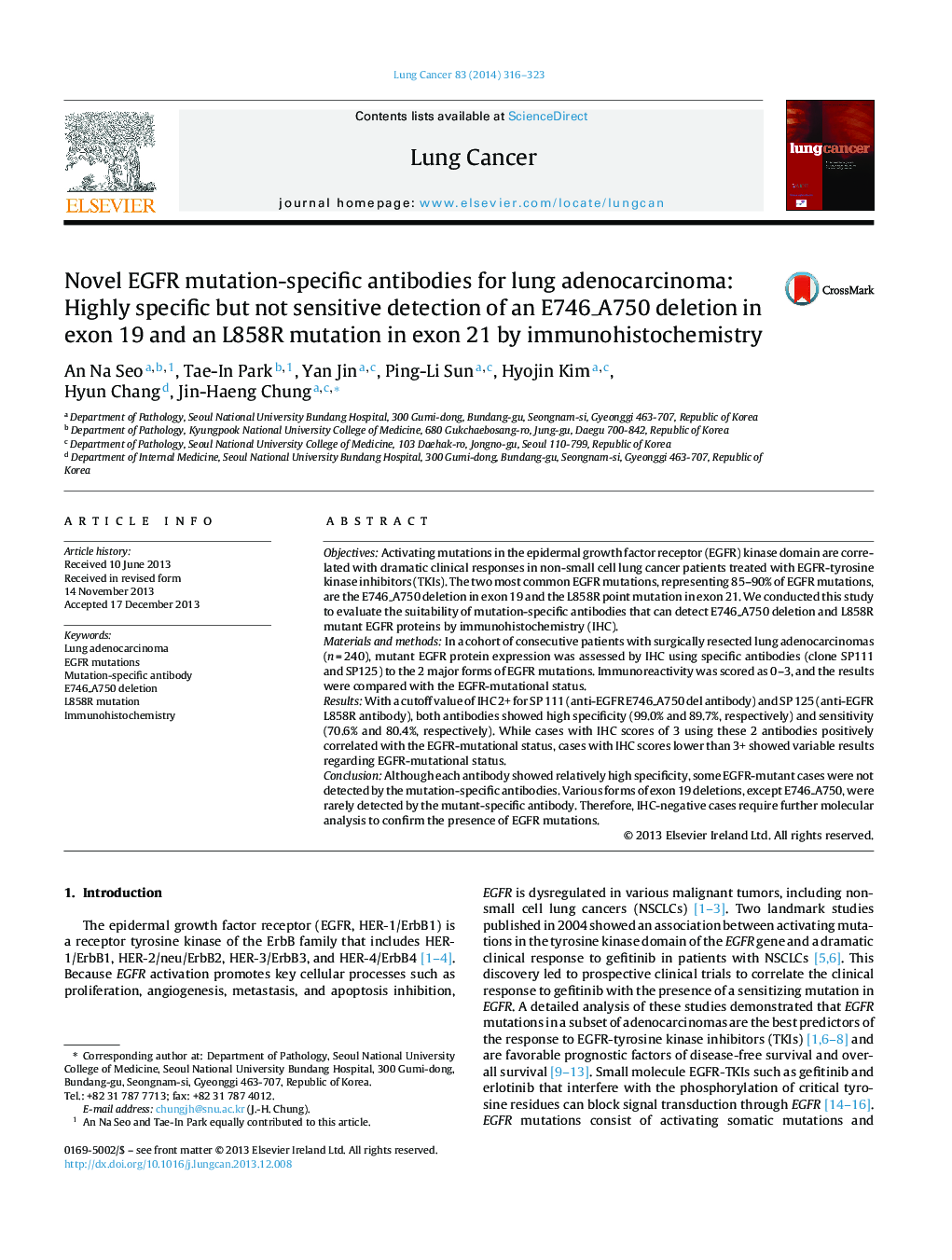| Article ID | Journal | Published Year | Pages | File Type |
|---|---|---|---|---|
| 2140926 | Lung Cancer | 2014 | 8 Pages |
ObjectivesActivating mutations in the epidermal growth factor receptor (EGFR) kinase domain are correlated with dramatic clinical responses in non-small cell lung cancer patients treated with EGFR-tyrosine kinase inhibitors (TKIs). The two most common EGFR mutations, representing 85–90% of EGFR mutations, are the E746_A750 deletion in exon 19 and the L858R point mutation in exon 21. We conducted this study to evaluate the suitability of mutation-specific antibodies that can detect E746_A750 deletion and L858R mutant EGFR proteins by immunohistochemistry (IHC).Materials and methodsIn a cohort of consecutive patients with surgically resected lung adenocarcinomas (n = 240), mutant EGFR protein expression was assessed by IHC using specific antibodies (clone SP111 and SP125) to the 2 major forms of EGFR mutations. Immunoreactivity was scored as 0–3, and the results were compared with the EGFR-mutational status.ResultsWith a cutoff value of IHC 2+ for SP 111 (anti-EGFR E746_A750 del antibody) and SP 125 (anti-EGFR L858R antibody), both antibodies showed high specificity (99.0% and 89.7%, respectively) and sensitivity (70.6% and 80.4%, respectively). While cases with IHC scores of 3 using these 2 antibodies positively correlated with the EGFR-mutational status, cases with IHC scores lower than 3+ showed variable results regarding EGFR-mutational status.ConclusionAlthough each antibody showed relatively high specificity, some EGFR-mutant cases were not detected by the mutation-specific antibodies. Various forms of exon 19 deletions, except E746_A750, were rarely detected by the mutant-specific antibody. Therefore, IHC-negative cases require further molecular analysis to confirm the presence of EGFR mutations.
